A token is a cryptocurrency built for a particular project and using an existing blockchain. Tokens are generally developed and used by startups or organizations looking to raise funds for their new projects, generally in the blockchain space, but not always.
Ethereum, Binance (Binance Smart Chain), and TRON are three of the most popular blockchains used for ICO token development. They use ERC-20, BEP-20, and TRC-20 token standards respectively.
In this article, we will talk about everything concerning tokens, including what a token standard is and the different types of token standards.
Free Consultation with Token Development Experts
What is a Crypto Token Standard?
A token standard contains a set of rules by which all the tokens on that particular standard are governed. In other words, a token standard defines the mechanism to create, issue, and deploy new tokens on a specific blockchain.
For example, ERC20 token development is an Ethereum token development standard that provides an easy way for developers to build new tokens based on the Ethereum blockchain.
All ERC20 tokens will have common properties and will be governed by the same rules. Besides ERC-20, BEP-2, BEP-20, and TRC-20 are some of the other popular crypto token standards.
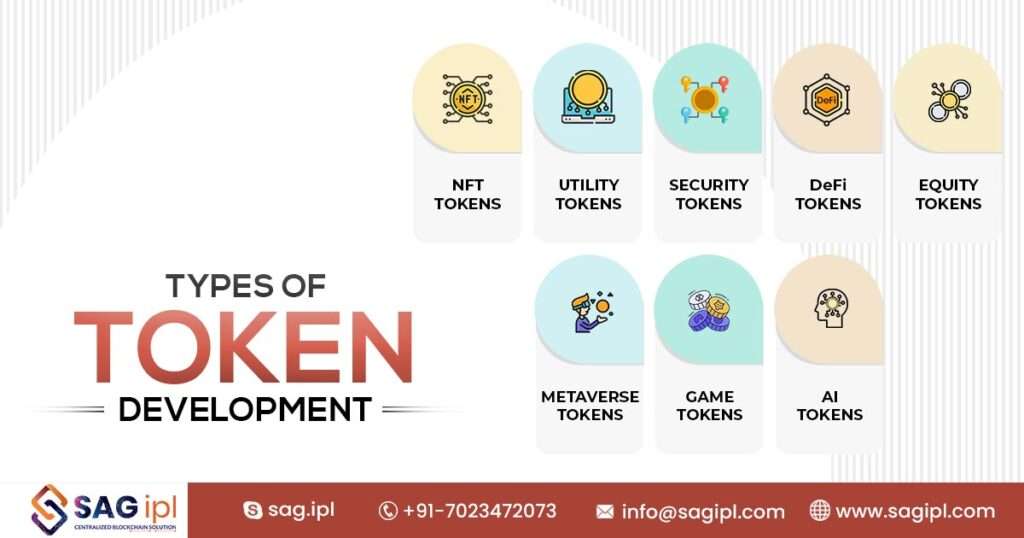
How Many Different Crypto Token Standards are there?
Every blockchain can have its own token standard, and sometimes more than one. For example, Ethereum has multiple token standards, including ERC-10, ERC-20, and ERC-721.
If we talk about the most popular types of crypto token standards for advanced crypto token development
- ERC-20 (Ethereum)
- TRC-20 (TRON blockchain)
- BEP-20 (Binance Smart Chain)
Let’s now discuss each in detail along with the various differences between these and how to choose the best token standard for your project.
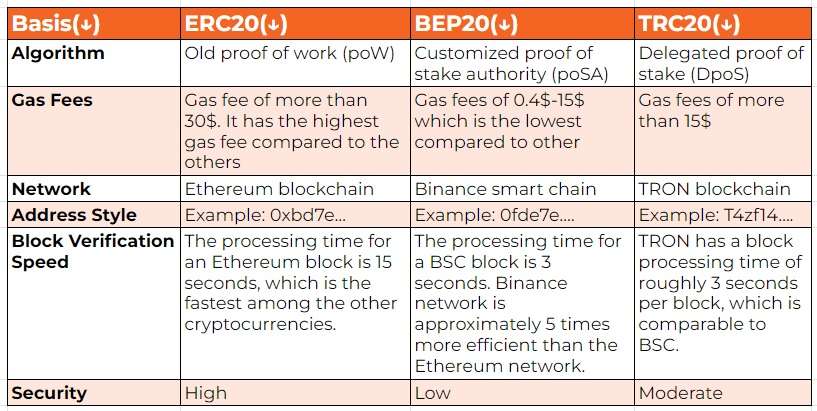
ERC-20 Token Standard – What it is How it works
ERC-20 is the most popular and used token standard of all time. Most of the tokens you see on CoinMarketcap.com are ERC20 tokens built on the Ethereum network. ERC-20 is also one of the oldest and most trusted standards for creating tokens.
ERC stands for Ethereum Request for Comment. All the tokens that are created and run on the Ethereum blockchain must abide by the rules of the ERC-20 token standard. Ethereum smart contracts are used to create ERC-20 tokens that can be bought and sold as well as traded on exchanges.
Variety of ERC-20 Token
ERC-20 token standard contains a variety of information, including:
- Details of the total token supply
- How the tokens will be transferred,
- How the tokens can be withdrawn,
- Token balance in the account,
- How the tokens will be received.
Creating an ERC20 token is easy and affordable. Moreover, the transactions involving ERC 20 tokens are fast, with efficient quick transaction confirmation. The contract-breaking risk is also low with the Ethereum network. ERC-20 transactions are fast, effective, and globalized, thanks to the power of Ethereum.
Also, you can expect higher liquidity and increased revenue because of the global acceptance and wide reach of ERC-20 tokens. ERC20 token development is cost-effective and time-saving.
The tokens created with this method are user-friendly, very secure, and come with dedicated wallets. It’s the easiest way to raise funds for a crypto startup project.
Custom crypto tokens created on the Ethereum network and based on the ERC-20 standard could be used both in the BSC and the TRON network as well.
How to create an ERC-20 token
Creating an ERC-20 token is rather easy for developers. However, if you have no knowledge or experience in blockchain development, seeking professional help is recommended, as ERC-20 token development requires technical expertise and knowledge of programming languages.
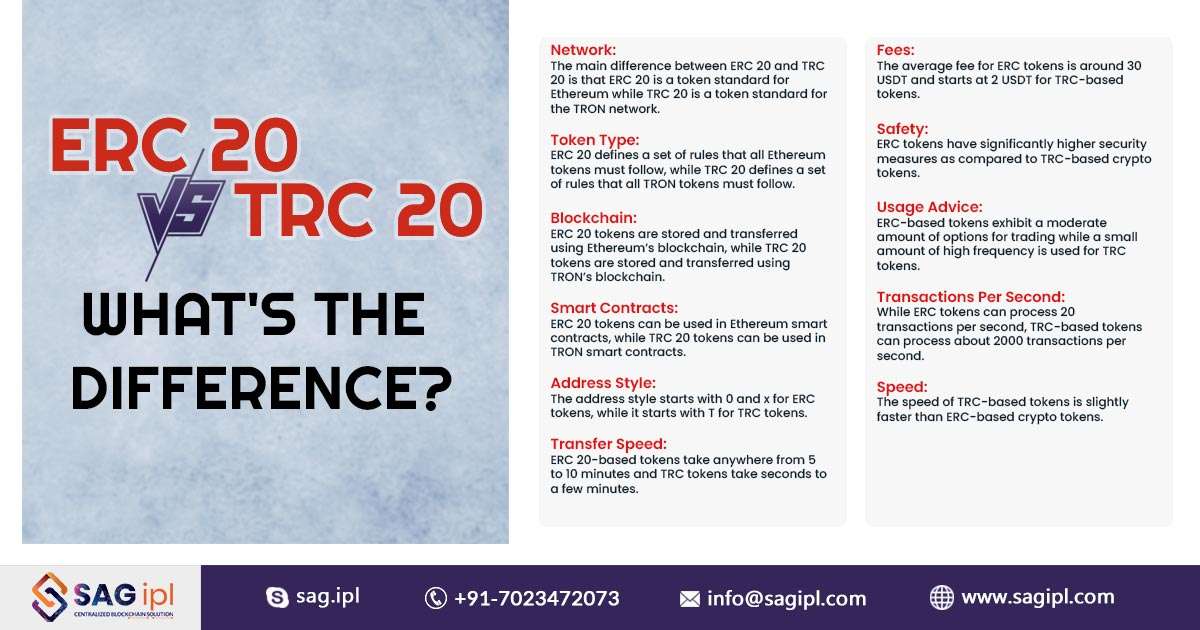
BEP-20 Token Standard
BEP-20 is the second most popular standard for crypto token development. Many of the new tokens are being developed on the Binance Smart Chain, mainly because it’s faster more efficient, and supports cross-chain compatibility.
The BEP-20 was created as an extension of the ERC-20 and, therefore, inherits all the ERC20 features.
BEP 20 is the primary token standard for the Binance Smart Chain, i.e. all tokens on the BSC are automatically based on the BEP-20 standard. The BEP-20 defines the rules according to which a BEP-20 token will be utilized, transferred, approved, and managed.
Note: BEP-20 is not to be confused with BEP-2. These are two separate token standards of Binance. While BEP-20 is a token standard of the Binance Smart Chain (BSC), BEP-2 is connected with the Binance Chain.
Unlike Binance Chain, BSC supports the smart contract functionality, and so do the BEP-2 tokens.
All BEP-20 tokens are based on the Binance Smart Chain, which is a dedicated Binance blockchain network created for running smart contracts and DApps. The BSC allows developers to build smart contract-powered decentralized applications.
Many people do not know that BSC is compatible with ETH and offers a faster, low-cost way to process transactions. That means you can use the Binance Smart Chain (BEP token) to transfer ERC20 tokens at a much faster speed and at a very low cost.
Not only ERC-20, but many other tokens, including Bitcoin, Ether, Litecoin, and USDT can be transferred using BEP-20.
Other advantages of the BEP-20 token system include compatibility with BEP-2 ERC-20 tokens, support of the Binance Exchange, built-in functions features of BEP-20 standard, easy swapping with BEP-2 tokens, supported by many wallets, and cross-chain compatibility with other blockchain tokens.
BEP-20 token development process
The process to create a BEP-20 token is comparatively easier. You can even create a basic BEP-20 token without any technical knowledge or blockchain expertise.
However, developing a customized feature-rich BEP-20 token from scratch would certainly require the technical expertise of a professional BEP-20 token developer.
Hire BEP-20 token development services from SAG IPL expert blockchain company.
TRC-20 Token Standard
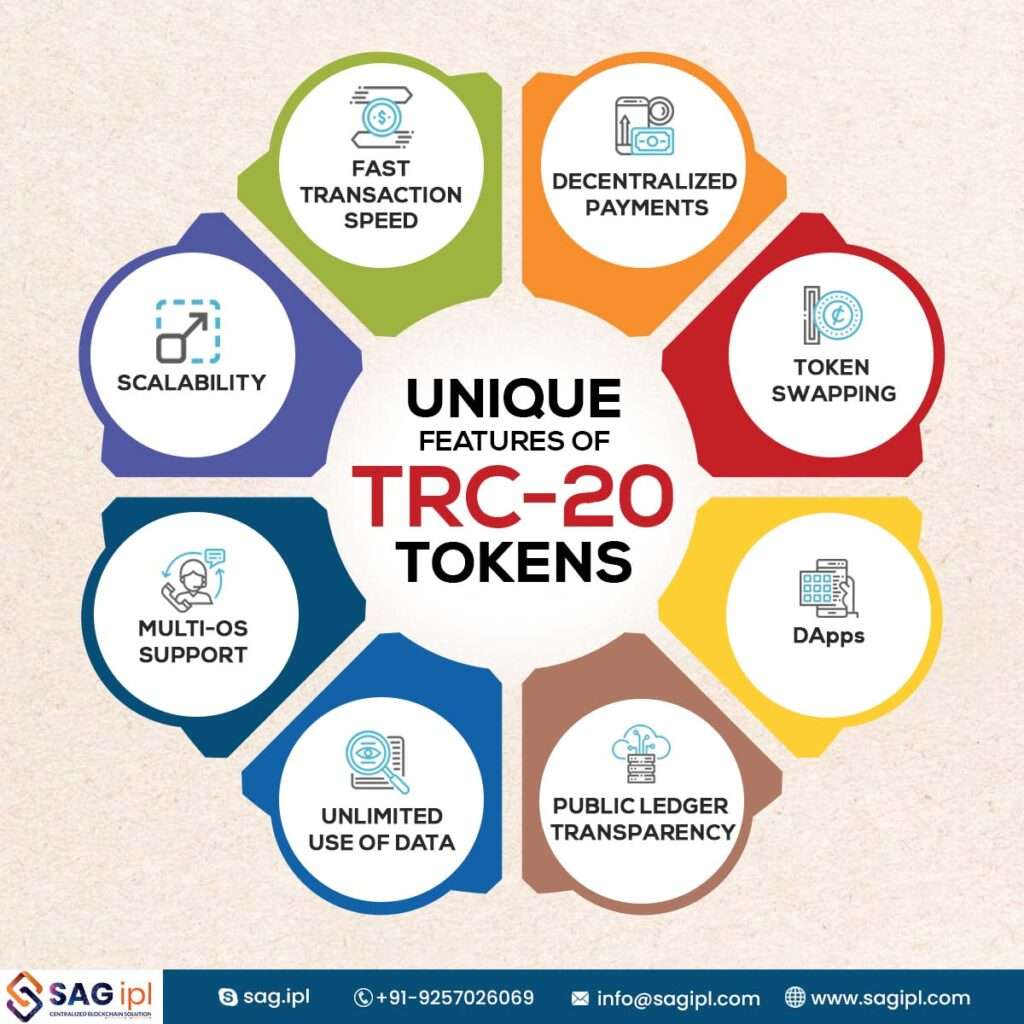
TRC20 is a token standard for issuing and managing tokens created on the TRON blockchain. The TRC20 standard defines the rules that every token in the network must follow.
These include the rules for the issuance of new tokens, performing and approving a token transfer, sending and receiving tokens, and more.
All tokens on the TRC20 network will be supported by specific digital wallets, and can be swapped, transferred, and shared, given that they follow the rules specified under the TRC20 contracts, including totalSupply(), balanceOf(), transfer(), approve(), transferFrom(), and allowance().
Besides that, TRC20 tokens may also follow the options rules, including Token Name, Token Abbreviation, and Token Precision.
TRON network was created as a more efficient clone of Ethereum, with lower fees and faster transaction speed.
Since the TRON Virtual Machine – the operating system for TRON smart contracts – uses the same Solidity language for contract programming as Ethereum, all TRON tokens and smart contracts are seamlessly compatible with the Ethereum network. That means TRON tokens can be used on the Ethereum network, and vice versa.
TRC-20 is the standard used for issuing new tokens on the TRON blockchain. Since TRON is a public blockchain, it allows anyone to create and issue their tokens according to the rules specified in the TRC-20 standard. All TRC-20 tokens can seamlessly interact with all other tokens and apps created on the TRON network.
Unlike ETH, which uses the Proof of Work (PoW) consensus mechanism, the TRON network uses Delegated Proof of Stake (DPoS) consensus method, which is not only more efficient in terms of fast transaction speed and low cost but also is built with many unique innovations to suit the latest requirements.
The TRON network has an average block time of 3 seconds per block, which is far better than Ethereum’s 15 seconds block time.
TRC-20 Token Development
New TRC-20 tokens can be created and issued on the TRON network website https://developers.tron.network/ . For this, the developer must prepare the TRC20 smart contract code, which of course requires technical knowledge and understanding of the programming language. After the contract is built, it can be deployed on the network and new tokens can be issued on the contract.
Need help? Hire professional TRC-20 token development services from SAG IPL.
Don’t Worry About It!
ERC-20 vs. TRC-20 vs. BEP-20
The primary difference between the three most popular token standards is that of the underlying network. While ERC20 crypto tokens are based on the Ethereum blockchain, BEP20 tokens are built on BSC, and TRC20 tokens are based on the TRON blockchain.
All three networks use the same solidity language, which means they are mostly cross-compatible and can be used interchangeably, with tokens developed on one platform accessible on others. Also, the process of creating and deploying tokens is nearly similar on all three networks, except for the fees and ease of use. In terms of efficiency, the BSC network is the best for token development and offers the lowest fees.
TRON is basically a clone of Ethereum, with increased efficiency and reduced cost. Since mining on the Ethereum network is impractical because of the very high fees, alternatives like TRON and BSC emerged, offering more efficient and cost-effective solutions along with all features of the Ethereum blockchain.
Since the BSC network is compatible with ERC20 and TRC20, you can send or withdraw an ERC-20/TRC-20 token using the BEP-20 network.
While the Ethereum network still uses the old Proof of Work (Proof) consensus algorithm, the Binance Smart Chain uses a customized Proof of Staked Authority (or PoSA) mechanism, which is said to have a 3-second block processing time as compared to Ethereum’s 15-second block time.
So, clearly, the Binance network is about 5 times more efficient than the Ethereum network. TRON’s Delegated Proof of Stake (DPoS) is also a customised version of PoS and has a recorded block processing time of 3 seconds per block, which is about the same as that of BSC.
In fact, the inefficiency of Ethereum was the major reason behind the creation of other blockchains. Over time, as traffic and demand increased, Ethereum’s slow consensus model proved to be inefficient and very costly, which led to the development of TRON (in 2017) and then the Binance Smart Chain (in 2019).
TRON blockchain with its delegated proof of stake (DPoS) consensus is clearly more efficient than Ethereum and can process more transactions in less time and at lower fees.
In terms of popularity, BEP-20 is only second to ERC-20 and is growing quite fast, thanks to the increasing global popularity of the Binance Exchange. All BEP-20 tokens are automatically listed on the Binance Exchange and are compatible with multiple token types including Bitcoin, ETH, Litecoin, and others.
If you are looking for ease of development and want to benefit from the global exposure, reach and popularity of Ethereum, ERC20 token development is the best for you. However, if you want the best most innovative token with the lowest fee and processing time, choose BEP-20 token development.
Since the transaction fee on Ethereum is already very high and gets higher as the load on the network increases, developers have a hard time considering building complex apps with advanced features, as this can further increase the transaction fees on the network. TRON overcomes this issue by introducing a way to build advanced smart contracts and apps without affecting the network fees by a lot.
However, the Binance Smart Chain certainly comes out as the winner in the competition between these three most popular blockchain networks for token development. Why? Because BSC is efficient, cost-effective and super fast.
Unlike Ethereum, where the transaction fee is only growing with time, Binance has somehow found a way to keep the transaction fee low with increasing use.
Believe it or not, the daily average fee on Ethereum’s network is almost 200 times compared to the daily average fee on the BSC network. It’s even better than the TRON network. And that’s the best reason to choose Binance Smart Chain for your token development project.
| Contract Functions(↓) | ERC20(↓) | BEP20(↓) | TRC20(↓) |
| Token name | ✓ | ✓ | ✓ |
| Token abbreviation(Symbol) | ✓ | ✓ | ✓ |
| Token precision (Decimal) | ✓ | ✓ | ✓ |
| totalsupply() | ✓ | ✓ | ✓ |
| balanceOf() | ✓ | ✓ | ✓ |
| transfer() | ✓ | ✓ | ✓ |
| approve() | ✓ | ✓ | ✓ |
| transferFrom() | ✓ | ✓ | ✓ |
| allowance() | ✓ | ✓ | ✓ |
| mint() | ✓ | ✓ | ✓ |
| staking() | ✘ | ✓ | ✓ |
Things to consider for Crypto Token Development
Are you looking to build a new token for your cryptocurrency wallet development project? Consider the following aspects of token development for the best results.
Token compatibility
The token must be created to be compliant with the respective token standard.
Token supply
At the time of creating a crypto token, the maximum supply for it must be predefined.
Token issuance
How the new tokens will be created or issued, through mining or staking or both.
Token burning
Whether the tokens will be burned to reduce the supply and increase demand. If yes, how frequently and how many.
Token rights
What kind of rights does a token owner/holder gets. They may have governance rights, voting rights, or no rights at all.
Token listing
After the token is successfully developed, it must be listed on relevant exchanges for trading.
Ready to build your next-gen Crypto Token? Contact us today!
SAG IPL is a premier blockchain development agency providing token development services to businesses in a variety of industries. We have over 10 years of experience in blockchain development and have built tokens on all the leading platforms, including ERC-20 crypto token development, TRC-20 token development, and BEP-20 token development.
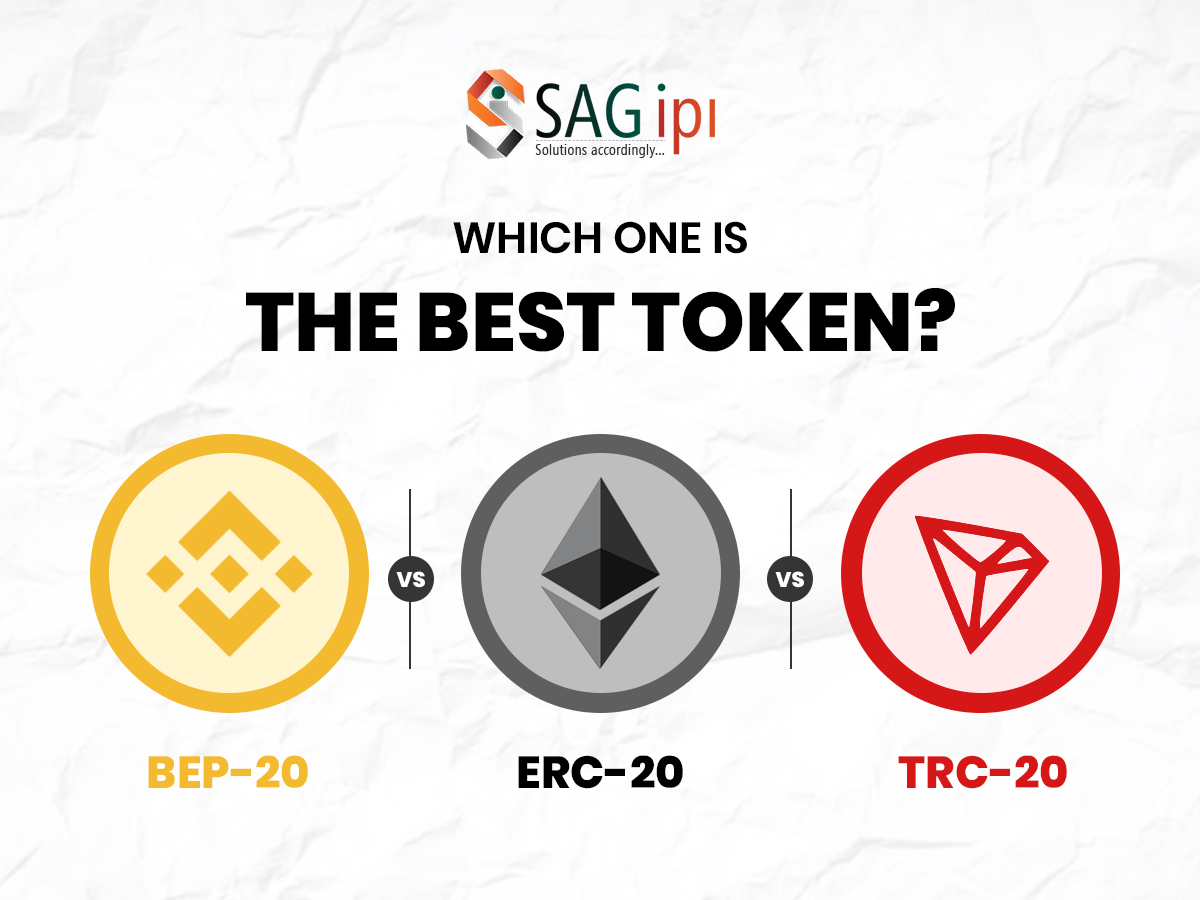

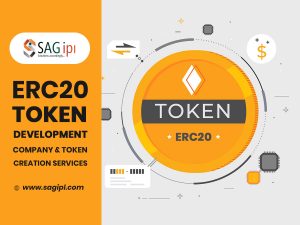
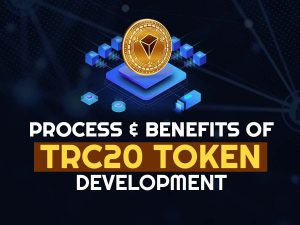
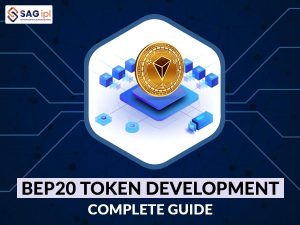
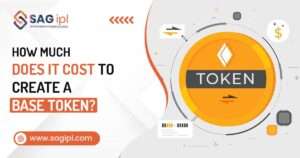
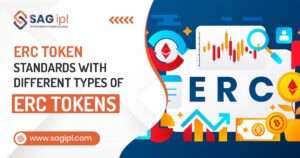
![BRC20 Token Development & Marketing Services for You [2026] BRC20 Token Development & Marketing](https://blog.sagipl.com/wp-content/uploads/2023/12/BRC20-Token-Development-Marketing-300x158.jpg)
